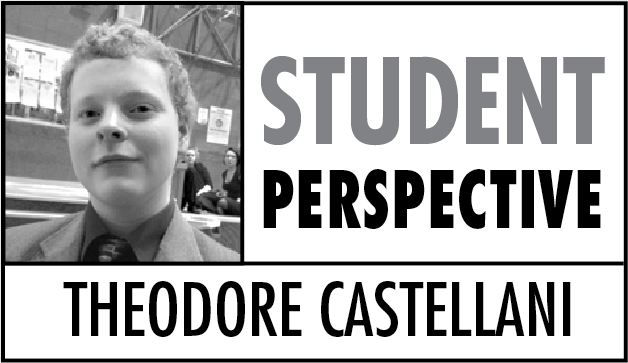Editor’s Note: Freshmen students in Sean Campbell’s class at Homer High School have been writing opinion pieces. The Homer News plans to publish several over the next few weeks. Here’s a sample.
Antonin Scalia’s death has already turned purely political.
Mere hours after Scalia’s death was confirmed on Feb. 13, Senate Majority Leader Mitch McConnell spoke out and said, “This vacancy should not be filled until we have a new president.”
McConnell also stated that the Senate will not hold a meeting with Obama regarding the issue. McConnell is holding on to the hope that if a Republican president is elected, they will nominate a conservative Justice, whereas Obama is almost guaranteed to nominate a liberal Justice, giving the majority to liberals. Before Scalia’s death, the ratio of Democrats to Republicans in the Supreme Court was 4/5. Now that the field is even, both parties want the majority.
I’m not here to argue which party should have the majority in the Supreme Court. I’m here to say that Obama’s nominee should be considered and voted on. Here’s why:
Firstly, if we did wait for a new President to nominate a new Justice, chances are that the President wouldn’t make a selection until February 2017. And after the nomination, it could take weeks for the senate to approve or reject the candidate. Extending the amount of time that we are without a full Supreme Court could prove dangerous, especially while making decisions on matters such as abortion and immigration (both come up for oral arguments in the next few months). We don’t need a deadlock on huge issues like these. What we need is nine Justices to restore order.
Moving on to my next argument, Obama still has time, and lots of it. During the Republican Presidential Debate on Feb. 13, Florida Sen. Marco Rubio said, “It has been over 80 years since a lame-duck president appointed a Supreme Court justice.” This a complete fallacy on multiple counts. First of all, Obama is not a “lame-duck.” The period in which a President should cease making important decisions is in between the election of a new President, and their inauguration.
Secondly, Scalia died with 340 days left in Obama’s term, far from making him a lame-duck. And lastly, according to an article on latino.foxnews.com, in the past 90 years, eight Justices have been appointed by Presidents in election years. Six of these nominations were accepted, including legal giants like Louis Brandon (1916) and Benjamin Cardozo (1932). Not to mention, Reagan nominated Anthony Kennedy in 1987, Kennedy’s seat was approved in February, 1988.
This brings me to my final point, The United States Constitution. The Appointment Clause states that the President, “shall have the Power, by and with the Advice and Consent of the Senate, to … appoint … Judges of the Supreme Court, and all other Officers of the United States.” Notice how it says nothing about the year of an election? The Senate has the right to reject any nominee the President puts forward, and they have taken advantage of that right. However, to refuse to vote on, let alone consider a Justice that Obama nominates, seems irrational if not unconstitutional.
Theodore Castellani is in the ninth grade at Homer High School. He is the son of Jen and Paul Castellani and grew up on the family farm between Homer and Anchor Point.


